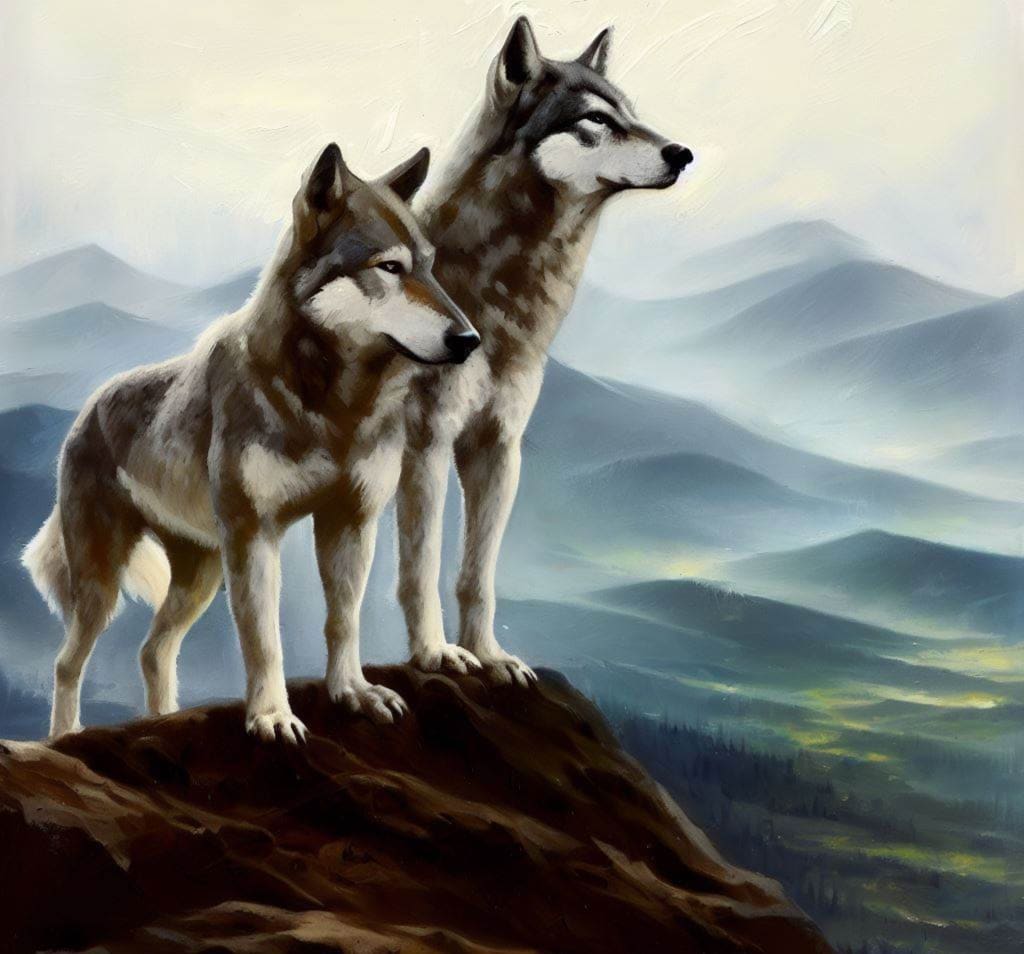The Power of Unity: The Values that Sustain a Wolf Pack
Exploring the Strength of Cooperation and Solidarity in the Animal Kingdom

In the vast world of nature, there are examples of harmony and teamwork that inspire those who observe them. One of the most notable demonstrations of values such as cooperation, solidarity, and leadership is found in wolf packs.
These magnificent predators, who have survived for centuries, have evolved with deeply rooted values that allow them to thrive in a challenging environment. In this article, we will explore the values that sustain a wolf pack and how these can be applied to our own lives and society.
I. The Value of Unity in Survival
Survival is the ultimate priority for a wolf pack. In their constant struggle to find food and defend their territory, unity becomes a crucial factor for their success.
Wolves work together to hunt larger and more dangerous prey than they could individually. Through coordinated hunting strategies, they use their cunning and skills to surround and overwhelm their prey.
This approach demonstrates the importance of cooperation and solidarity in overcoming challenges and achieving common goals.
II. The Value of Communication and Trust
Effective communication is essential for any social group, and wolf packs are no exception. These animals use a wide range of vocalizations and body signals to communicate with each other.
Through howling, growling, and gestures, wolves convey information about prey location, danger warnings, and strengthen the bonds among pack members.
Trust is another fundamental value within a wolf pack. Each member trusts others to fulfill their assigned roles and make decisions for the benefit of the group. Mutual trust and resulting cohesion enable the pack to function efficiently and adapt to changes in their environment.
III. The Value of Leadership and Hierarchy
Within a wolf pack, there is a clearly defined hierarchical structure. The leader of the pack, known as the alpha, plays a vital role in decision-making and guiding the group.
The alpha is responsible for leading the pack, establishing territories, resolving conflicts, and ensuring the survival of the group.
The hierarchy within the pack is established through a series of interactions and challenges among the wolves.
Stronger and more competent individuals ascend in the hierarchy, while less dominant ones occupy lower positions. This leadership structure not only ensures efficient organization but also maintains cohesion and stability within the pack.
IV. The Value of Protection and Mutual Care
Protection and mutual care are fundamental pillars in the functioning of a wolf pack. Wolves deeply care about the well-being of the younger and weaker members of the pack.
Pups are raised and educated by the entire pack, not just the biological parents. Adults take turns to care for, feed, and teach the pups, creating an environment of learning and mutual support.
Furthermore, when a member of the pack is injured or ill, the other wolves stand by their side, providing protection and care. This behavior reinforces the sense of community and responsibility that characterizes a wolf pack.
V. Applying the Values of a Wolf Pack in Our Lives
While wolves are animals and we are humans, there are valuable lessons we can learn from their way of life and apply to our own existence. The values of cooperation, solidarity, communication, trust, leadership, and mutual care are universal and can enrich our relationships and societies.
By collaborating instead of competing, encouraging open communication and mutual support, we can build stronger and more cohesive communities. Trust and ethical leadership are essential for the success of any group, whether in the workplace, education, or family environment.
Moreover, caring for and protecting the most vulnerable in our society are principles that can help us build a more equitable and compassionate world.
In conclusion, wolf packs are outstanding examples of fundamental values that sustain a united and successful community. Cooperation, solidarity, communication, trust, leadership, and mutual care are essential pillars in the lives of these magnificent predators.
By reflecting on these values and applying them to our own lives, we can create more harmonious and collaborative environments, both in our personal relationships and in society as a whole.
The next time you hear the howl of a wolf, remember the strength and wisdom behind it, and consider how you can incorporate those values into your own life.






Comments
There are no comments for this story
Be the first to respond and start the conversation.